Newsletter 32 – Sommer, Sonne und CrossAsia
Liebe CrossAsia Nutzer:innen,
der Sommer ist da und wir hoffen, Sie genießen die sonnigen Tage! Über die neuesten Entwicklungen bei CrossAsia informiert Sie dieser Newsletter in aller Kürze:
Aktuelle Testzugänge:
Chinese Dictionary Compendium bis zum 31.12.2024
Ihre Rückmeldungen zu den Datenbanken sind wichtig und helfen uns, bei der Entscheidung für oder gegen eine dauerhafte Lizenzierung.
Neu lizenzierte Datenbanken:
Shiryō Sanshū, Teil 2: Im November letzten Jahres wurde bereits Teil 1 des Werkes Shiryō Sanshū für CrossAsia lizenziert; seit dem 1. März 2024 können wir auch den zweiten Teil anbieten.
Encyclopedia of Turkic Languages and Linguistics: Im Juni konnten der FID Asien und der FID Nahost gemeinsam eine dauerhafte Lizenzierung der Encyclopedia of Turkic Languages and Linguistics ermöglichen, welche seitdem als Nationallizenz zur Verfügung steht.
Neuerungen beim Blauen Leihverkehr:
Seit April diesen Jahres gibt es folgende Serviceverbesserungen bzw. -änderungen beim Blauen Leihverkehr: Bestellungen von Materialien sind nun in allen Sprachen und Schriften möglich. Alle ausleihfähigen Bestände der Staatsbibliothek zu Berlin können bestellt werden. Es gibt eine neue Leihfrist von vier Monaten mit der Option von bis zu zwölf Verlängerungen, sofern keine Vormerkung vorliegt. Verlängerungen erfolgen durch die teilnehmende Bibliothek.
Erweiterung des CrossAsia ITR Explorers:
Der neue CrossAsia ITR-Newspaper Explorer ist ein Tool zur Recherche in lizenzierten Zeitungsmaterialien. Er bietet umfangreiche Suchfunktionen inkl. CJK-Zeichenmapping, Phrasensuche und die Möglichkeit zur Kombination von Ergebnismengen, und für die Ergebnispräsentation eine Heatmap-Visualisierung, um die zeitliche Verteilung von Suchergebnissen auf verschiedenen Skalen zu ermöglichen, von Jahrzehnt, Jahr, Monat bis hin zur Tagesebene. Die erste Version enthält vier Zeitungsquellen aus den Jahren 1832 bis 2012. Zu den enthaltenen Quellen zählen „Neueste-Mittheilungen“, „Historical Newspapers of China and South China Morning Post“, „Ta-kung Pao“ und „People’s Daily“.
CrossAsia Talks:
Vor der Sommerpause hat Dr. Xueqi JIANG am 18.07. „Zur abenteuerlichen Lebensgeschichte der beiden ersten Chinesen in Deutschland“, Asseng und Ahok, berichtet. Für alle Interessierten sei hier auch auf das dazugehörige Themenportal hingewiesen: https://themen.crossasia.org/fung-asseng/?lang=en.
Weiterhin ist die Dissertation von Herrn Dr. Jiang im CrossAsia Repository jetzt online zugänglich.
Im September melden wir uns dann am 26.09.2024 ab 18 Uhr mit Frau Dr. Barbara Wall (Universität Kopenhagen) und ihrem Vortrag „The Dynamic Essence of Transmedia Storytelling: A Graphical Approach to the Journey to the West in Korea“ zurück. Sie wird den im chinesischen Raum bekannten Roman „Die Reise nach Westen“ im Kontext der koreanischen Version vorstellen. Der Vortrag ist als Booktalk konzipiert, der sich auf ihre soeben erschienene Monographie bezieht.
Schenkung:
Im Mai hatte uns die Deutsch-Thailändischen Gesellschaft e.V. die Übernahme von thailändischen Büchern des 2023 verstorbenen thailändischen Arztes Dr.med. Suam Choke Kanokvichita angeboten. Das Interesse von Dr. Kanokvichita, der in Deutschland gelebt und praktiziert hatte, galt Thailand in seiner ganzen Vielfalt, was seine umfangreiche Büchersammlung widerspiegelte. Im Bereich der Medizin interessierte er sich besonders für traditionelle asiatische Medizin und sammelte Literatur zu dem Thema. Darüber hinaus verfasste er Bücher für Thailänder zum Erlernen des Thailändischen und für Thailänder zum Erlernen des Deutschen. Aus seinem Nachlass konnten wir ca. 170 Bücher in Thailändisch als Ergänzung für unsere Sammlung auswählen. Wir werden Sie informieren, wenn die Bücher zur Nutzung bereitstehen.
Kooperation:
Das Center for Digital Cultures der Academia Sinica (Taiwan) war zu Besuch bei CrossAsia. Am 16.7. konnten die Staatsbibliothek zu Berlin/CrossAsia ein Memorandum of Understanding (MOU) mit der Academia Sinica in Taiwan, vertreten durch das Center for Digital Cultures, unterzeichnen. Ziel der Vereinbarung ist es, die chinesischen Titel der Digitalen Sammlungen der SBB mit Volltexten zu versehen.
Fördermittel:
CrossAsia hat von der Korea Foundation einen Förderzuschuss für „e-Ressourcen für Koreastudien“ erhalten. Ziel dieses Zuschusses ist es, Abonnements für koreanische Datenbanken für CrossAsia zu unterstützen und elektronische Ressourcen für die Koreastudien erheblich auszubauen.
Rückblick:
Es fand eine Präsentation thailändischer Handschriften anlässlich des Besuchs der Prinzessin Maha Chakri Sirindhorn in der Staatsbibliothek statt. Die thailändische Prinzessin Maha Chakri Sirindhorn war am Vormittag des 03. Juli 2024 zu Gast in der Staatsbibliothek zu Berlin. Nach der Begrüßung durch Herrn Prof. Dr. Achim Bonte führte sie und ihre Delegation Herr Vincent Schmidt durch das Kulturwerk mit seinen Schätzen. Es schloss sich eine Präsentation thailändischer Handschriften an. Unter anderem erläuterte Frau Dr. Claudia Götze-Sam (Ostasienabteilung) ein Ramakian-Faltbuch aus dem 18. Jh. und eine illustrierte Handschrift über die Erfahrungen des Mönchs Phra Malay beim Besuch der unterschiedlichen buddhistischen Welten. Auf ausdrücklichen Wunsch der Prinzessin Sirindhorn zeigten ihr Frau Dr. Carolin Schreiber (Leiterin der Handschriften-Abteilung) Handschriften und Drucke aus dem deutschen und europäischen Kontext und Herr Dr. Martin Jeske (Kartenabteilung) Materialien mit Bezug zum Kalten Krieg.
Die Veranstaltung Charting the European D-SEA – Digital Scholarship in East Asian Studies – Workshops und Konferenz“ fand vom 08. – 12. Juli 2024 an der Staatsbibliothek statt. Es wurde ein Überblick über den aktuellen Stand der digitalen Forschung in den Ostasienwissenschaften in Europa gegeben, verschiedene Workshops und die Konferenz am Donnerstag und Freitag luden dazu ein, sich über die wichtigsten Methoden und Ressourcen zu informieren. Eine Nachlese zur Veranstaltung fasst die wichtigsten Punkte noch einmal zusammen.
Ausblick:
Auch in diesem Jahr bietet die Stiftung Preußischer Kulturbesitz (SPK) Forschungsstipendien für internationale Wissenschaftler:innen an. Die Stipendien stehen für Forschungsarbeiten in Berlin mit den umfangreichen Sammlungen der Staatsbibliothek zu Berlin, wie z.B. den Beständen der Ostasienabteilung und CrossAsia, sowie den Beständen anderer Institutionen der SPK zur Verfügung.
Die Bewerbungsfrist für ein Forschungsstipendium an der Staatsbibliothek zu Berlin endet wie jedes Jahr am 30. September.
Alle notwendigen Informationen für eine Bewerbung (Richtlinien, Voraussetzungen etc.) finden Sie hier: https://staatsbibliothek-berlin.de/extras/spezielle-interessen/stipendien
Wir freuen uns auf den gemeinsamen Austausch mit Ihnen nach der Sommerpause!
Ihr CrossAsia Team

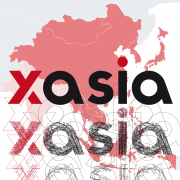
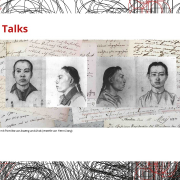
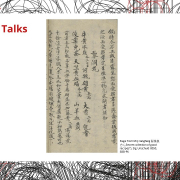
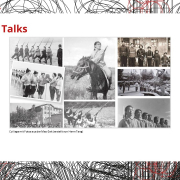
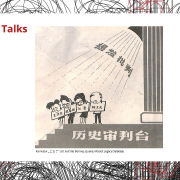
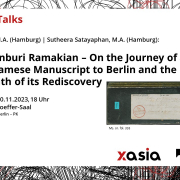
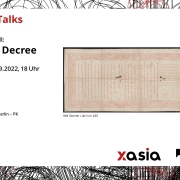 SBB-PK
SBB-PK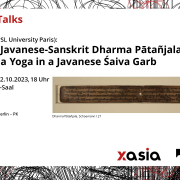
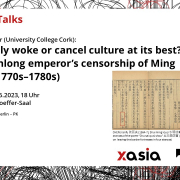 SBB-PK
SBB-PK